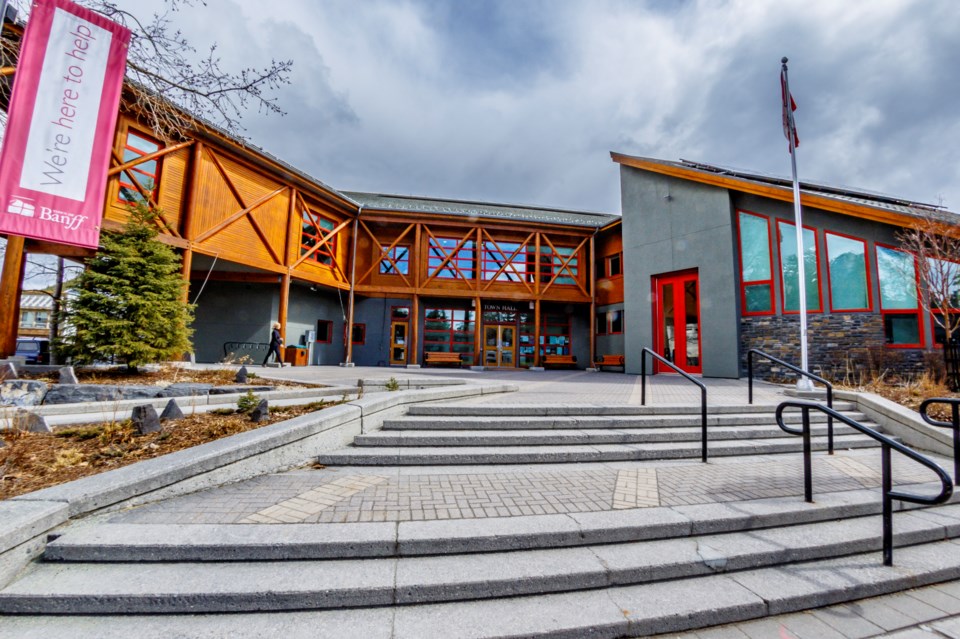BANFF – Banff’s elected officials look set to explore a home vacancy tax in a bid to deal with the tourist town’s housing crunch.
But first, they want administration to bring them costs associated with doing a preliminary analysis of vacant lands and under-utilized homes.
They’ve also asked for a scan of comparable programs, such as the City of Vancouver’s empty home tax, to determine possible gains of a tax for vacant land and under-utilized homes versus the costs of administering such a program.
Mayor Corrie DiManno said it’s worth exploring the issue, particularly if there’s a chance it could lead to development of housing and put a dent in Banff’s housing shortfall, estimated to be 750-1,000 housing units.
“We’ve moved the needle significantly in the last decade, but now we’ve done the low hanging fruit and it’s time to go deeper,” she said during the June 12 governance and finance committee meeting.
“I think exploring a vacancy analysis and an analysis of under-utilized homes is the next frontier into trying to solve our housing crisis, so I definitely think it’s a worthwhile endeavour.”
According to the Town of Banff, there are 18 vacant residential sites that have yet to be developed, and an unknown number of residential sites that are under-utilized, that is, homes that exist that aren’t being used, or being used very little.
Emma Sanborn, a development planner for the Town of Banff, said Vancouver has an empty home tax, where vacant properties are subject to a tax of three per cent of a property’s assessed taxable value.
She said similar taxes were introduced at the municipal level in Toronto and Ottawa this year.
“Council may be interested in re-exploring a vacancy tax based on the success of other Canadian municipalities,” she said.
Sanborn said prior to implementing any new fees or penalties, it is important to conduct a vacancy analysis to quantify levels of vacancy, as well as consider measures for meaningful compliance monitoring.
“This is permission to go down a rabbit hole and bring back a report for you … on what those tactics might look like,” she said.
“Questions about how would you like to treat undeveloped residential properties that have no dwellings on them, how would you like to look at the existence of under-utilized homes.”
The City of Vancouver’s empty home tax was back for debate before that city council last month, when council opted to keep the rate at three per cent rather than bumping it to five per cent in 2023 as per previous plans.
Revenues from Vancouver’s empty homes tax are dedicated solely to affordable housing initiatives. Since its inception six years ago until November 2022, the empty home tax has generated $115.3 million.
According to the City, approximately 160 fewer properties were declared vacant between 2020-21, a 20 per cent decline, and about 130 fewer properties were declared vacant between 2021-22, a further 20 per cent decline.
“Although the three per cent tax may have had an impact on the reduction of vacant properties, the significant and unprecedented COVID-19 pandemic may also be a major contributing factor in the decreasing trend in vacant properties in these years,” states the May 10 City of Vancouver staff report.
“CMHC reported unprecedented rental vacancy rates during the COVID-19 pandemic, with an upper threshold of 2.6 per cent in 2020, followed by decreases to 1.2 per cent in 2021 and to 0.9 per cent in 2022.”
In Banff, the discussion around a differential tax system is not new.
A bid by Coun. Ted Christensen in 2018 to explore options for differential tax rates for semi-occupied and out-of-town-owned properties was defeated.
DiManno said she recalls the number of vacant lands might have been lower back then.
“I think at the time we had some estimates of how much it would cost to administer a program and I think the juice wasn’t worth the squeeze,” she said.
“But now we’re here today all these years later and it’s worth taking a look at it again.”
Coun. Chip Olver also voiced support to explore the matter.
“We really have to look at everything and this is one more thing we can look at and hopefully it can lead to more housing in our community,” she said.
In addition, administration says bed and breakfast homes and inns displace housing in residential land use districts in order to provide visitor accommodation.
Based on previous council direction, corporate services administration will return with a report to council on different tax rates for bed and breakfast homes and inns before the end of September.
“At this time, council may explore directing revenue from this tax to the Community Housing Reserve fund to mitigate that impact,” said Sanborn.
The mayor said there’s been two motions to this effect to get this type of information.
“Clearly, there’s a desire to at least get the information and then we can go from there with the conversation,” she said.
The rental vacancy rate in Banff has historically been very low, with a healthy vacancy rate, according to CMHC, considered to be between three and five per cent.
In 2018, the rate crept up over one per cent for the first time in five years, while the vacancy rate was back down to zero in 2022.




